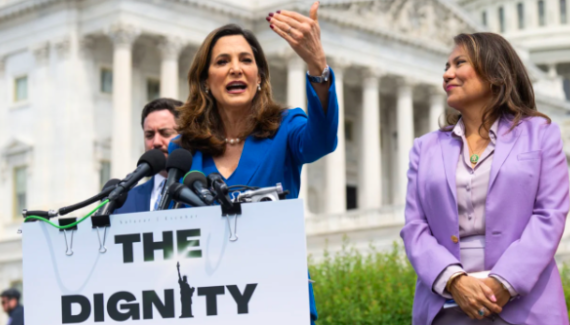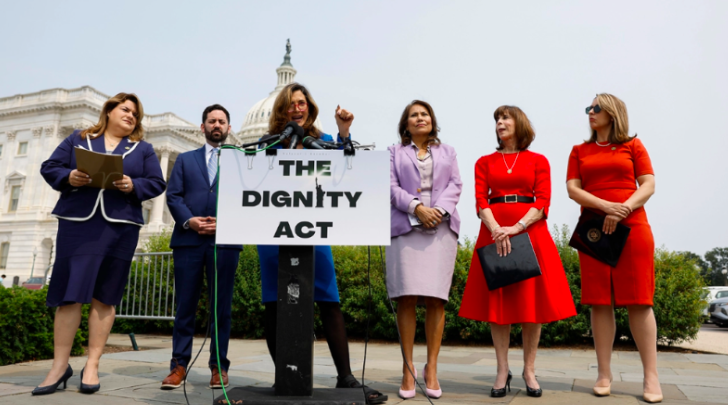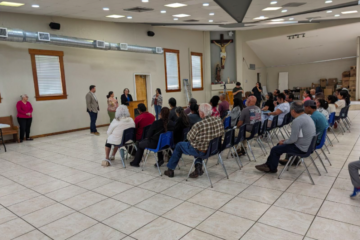The Dignity Act of 2023

Representatives Maria Elvira Salazar (R-Florida) and Veronica Escobar (D-Texas) introduced a new bipartisan bill on May 23, 2023, that focuses on a path to citizenship for undocumented immigrants in the United States by enhancing border security, giving undocumented people a chance to obtain legal status if they meet certain criteria, and modernizing the overall legal immigration system.
Since Salazar first introduced the concept in March 2021 as the Dignity Plan, the Dignity Act of 2023 has undergone some updates. Salazar and Escobar recently introduced the 483-page bill, which addresses funding for border infrastructure and equipment, asylum reform, visa reforms, and updated pathways toward obtaining U.S. citizenship. Salazar and Escobar collaborated with bipartisan members to develop a strong proposal that would receive a great deal of support.
The bill proposes allocating 10 billion dollars to expanding and updating the border points of entry. This funding would account for expanding vehicle, cargo, and pedestrian inspection lanes as well as increasing the amount of trained personnel in the U.S. Customs and Border Patrol.

In an effort to make them more available to people who seek them, the new measure would alter the process for obtaining asylum or a Visa in the United States. The plan calls for building five new facilities in Latin America that may provide support for those seeking refuge, including a pre-screening procedure before traveling to the U.S. They will also be awarded a humanitarian visa to enter the U.S. and have their application evaluated if they are qualified for asylum. This legislation would also enable anyone seeking asylum to apply for a work visa. The time it takes to review cases is another aspect of the asylum procedure that needs improvement. Asylum seekers will no longer have to wait the current 180 days for a decision; instead, cases will be decided in 45 days.
Not only individuals who have been applying for asylum will be impacted by this reduction in time, but also those who have been applying for visas. It is suggested that backlogs be limited to ten years, and those who have waited ten years or more would be given them. In addition, this legislation increases the maximum number of visas each country may issue from 7% to 15%, allowing many more people to apply for them.
The manner in which this bill would allow dreamers (including DACA recipients), certain TPS holders, and undocumented immigrants to earn a new legal status in the United States as either conditional permanent residents, lawful permanent residents, or dignity (lawful) status holders is one of the points that has received much attention within the community of immigrants. The Dream Act, American Promise Act, and Dignity Program are some of the programs that will be included in the bill to accomplish this, while others are also being planned. The length of time a person has lived in the United States, the amount of education they have completed, their good standing in criminal background checks, and other criteria can all be used to provide each of these legal status standings.

Overall, the proposed bill represents a significant milestone in addressing several crucial issues that have been a topic of bipartisan concern. With its comprehensive approach, the bill aims to build a more secure border, boost the economy, enhance tax contributions, and establish a more humane and accessible pathway to legal status for individuals.
Thank you to our Summer 2023 Intern Katherine for writing this story.


